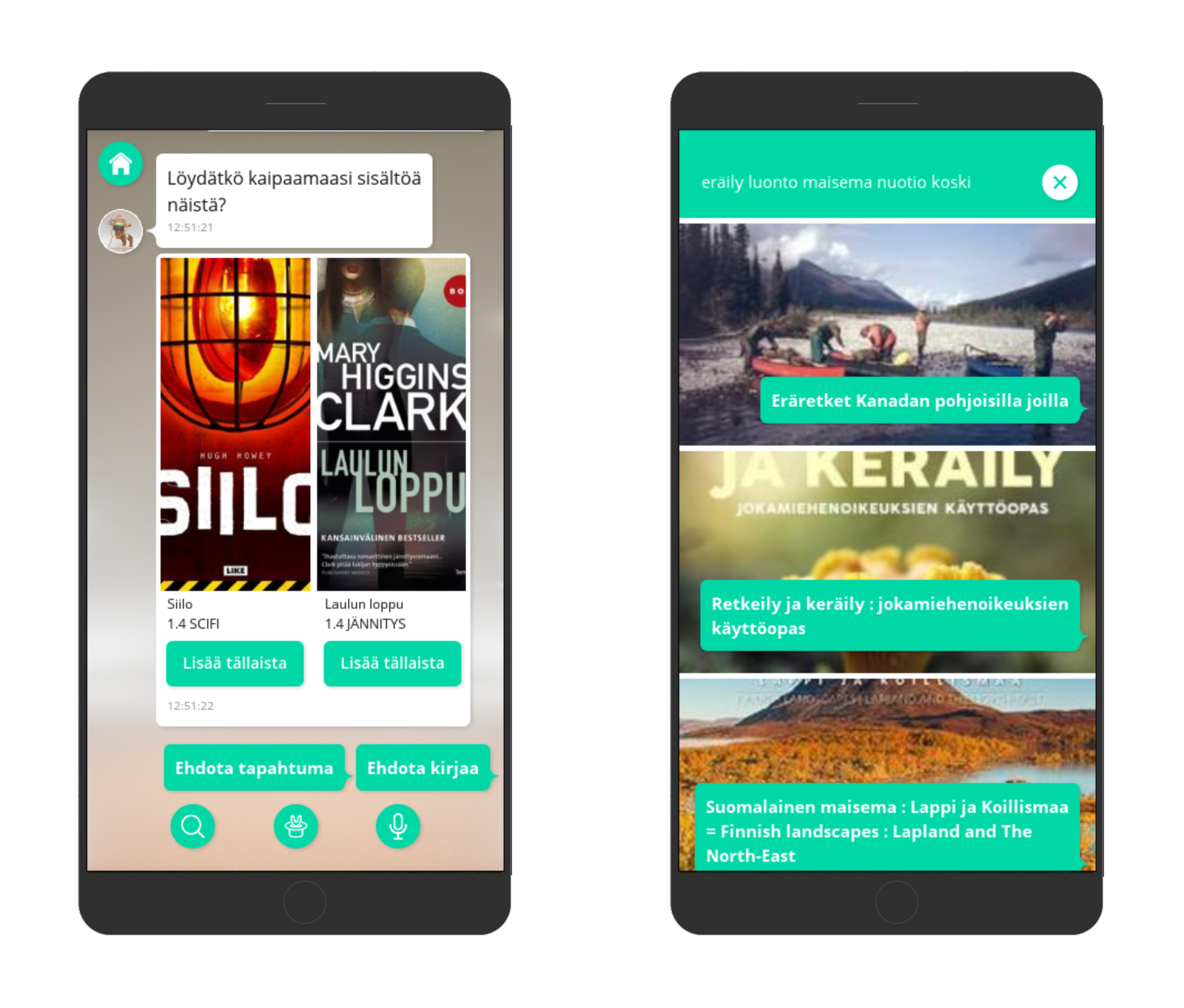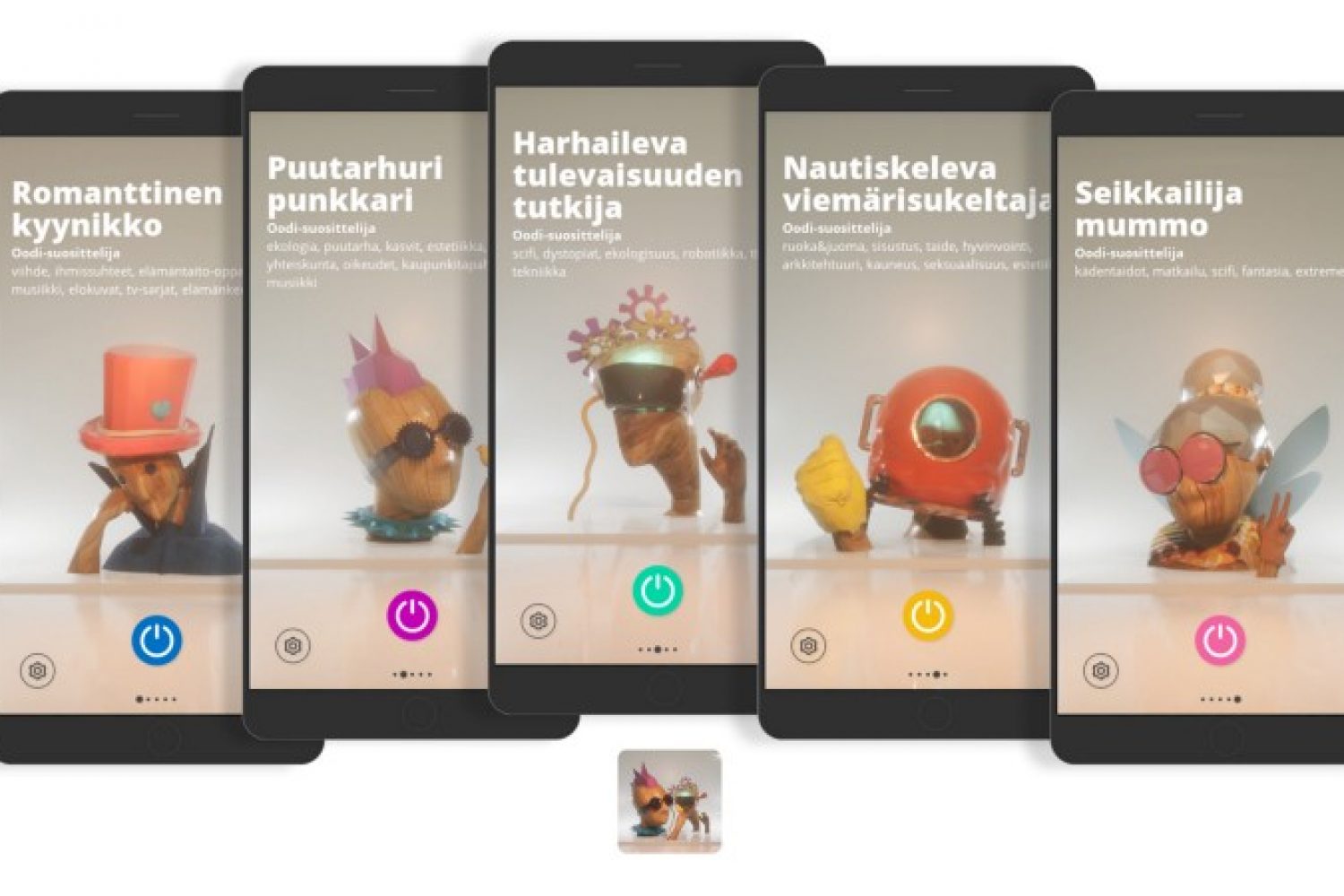Oodi: Helsinki Central Library, opened in December 2018
Industry: recreation and cultural services — a living meeting place at Kansalaistori square, right at the heart of Helsinki.
Number of visitors: at grand opening 55 000, first month 420 000, yearly estimate 2 500 000.
How to provide different kinds of readers with reading suggestions in a fast, efficient and entertaining way?
A big challenge for library visitors has always been a huge amount of information and how to find new and interesting content quickly and easily. Keywording and library classification* rigorously guides the search for information but does not offer discoveries that go beyond genre boundaries. Cognitive AI using NLP (Natural Language Processing) enables semantically suggesting material across genres. The Headai API enables implementing this kind of AI components into applications or, for example, to enhance the customer’s web service.
*Library classification system defined in Wikipedia:
A library classification is a system of knowledge organization by which library resources are arranged and ordered systematically. Library classifications use a notational system that represents the order of topics in the classification and allows items to be stored in that order.
Headai created six personal, AI-based recommenders for the Helsinki Central Library Oodi. Based on their own areas of interest, these virtual assistants provide visitors with interesting reading material. The Oodi app can be downloaded into visitors’ own mobile device, providing a quick and easy way to get read suggestions. The app is free and available for Android and iOS. It utilizes the library’s IoT data, as well as Linked Events API for information on local events, even the availability of city bikes nearby is available. There is also speech recognition technology that allows user to freely describe in his/her own words what kind of literature he/she is interested in.

The information assistants were visualized to fit into Oodi’s architecture
In service design, we paid much attention to the features of Oodi: modern architecture, the role of forerunner of libraries in Finland harnessing new technology to serve customers. Oodi recommenders have been visualized as stylish characters, whose building material, like the library itself, is largely wood. Every recommender was designed to have their own personality. Each one was trained with the specific vocabulary which leads to personal reading suggestions.


The characters were developed in collaboration with Oodi
During the development project, workshops were held to study and simulate a different kinds of library user-profiles and their encounter with bots. When the initial bot sketches were born, they were refined to gain elements of personality for both the visual and verbal side. During the development work each bot’s background teaching (vocabulary) was refined, and the balance with suggesting fiction non-fiction literature was calibrated.

We will also be implementing an easy-to-use admin interface for library staff to create new virtual assistants. This enables e.g. season-specific recommenders: During Christmas time the library staff can design and publish an assistant featuring Christmas theme, a friendship-centered character on a Valentine’s Day, and a sports enthusiast for the time period of Olympic Games.
At their best, AI-assisted book recommenders act as brilliant enthusiasts in the search for new literature. At the same time, they provide information about both Oodi and events in the surrounding area. The intuitive user interface makes the use very easy and fast. An artificial-intelligence-based book suggesting is a good example of a new technology that can add value to library content and automate repetitive information routines.

